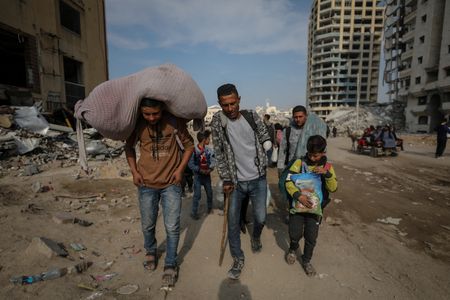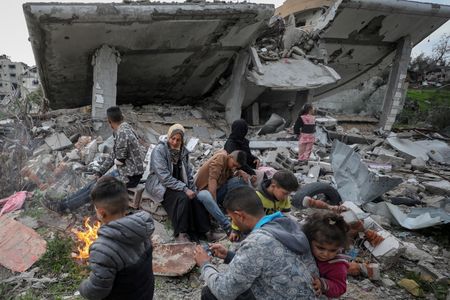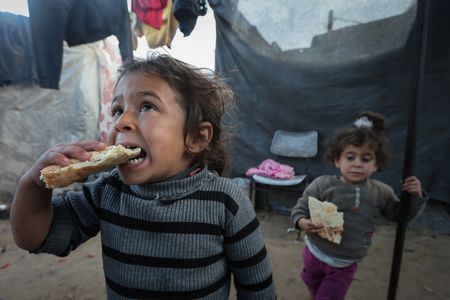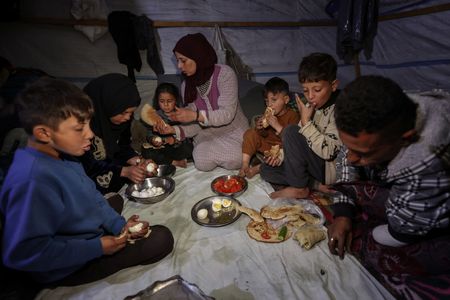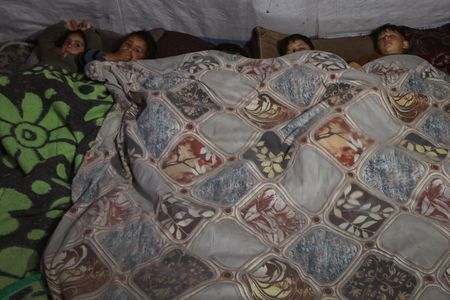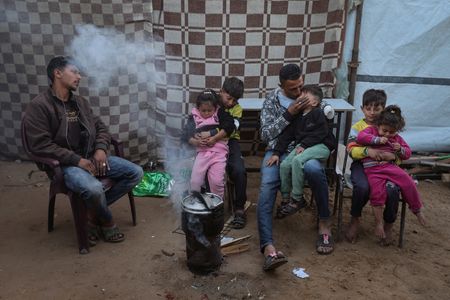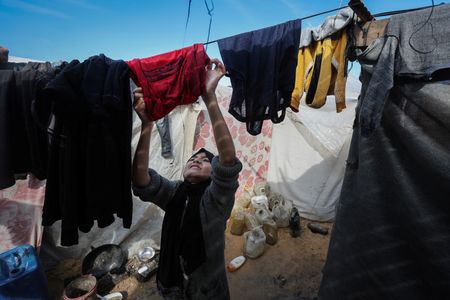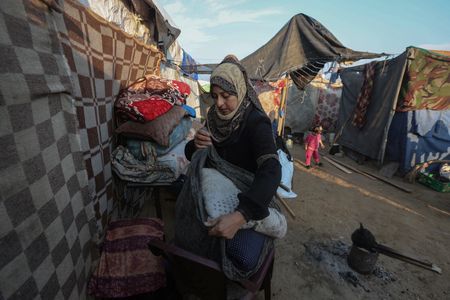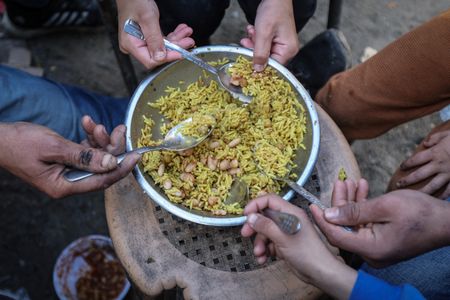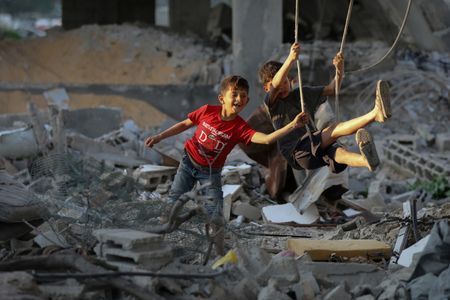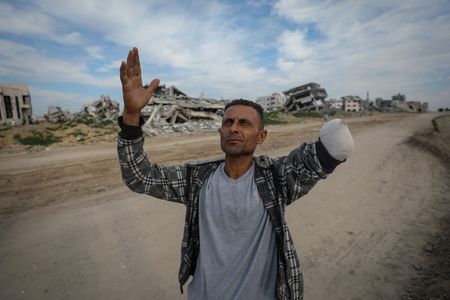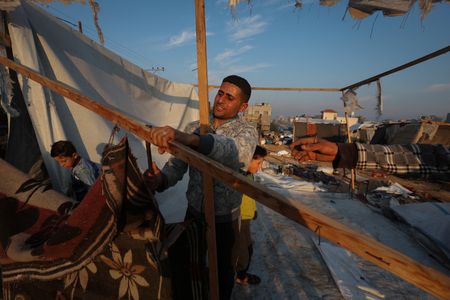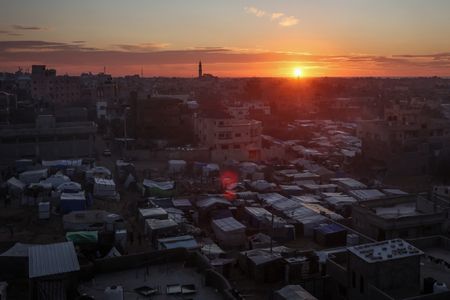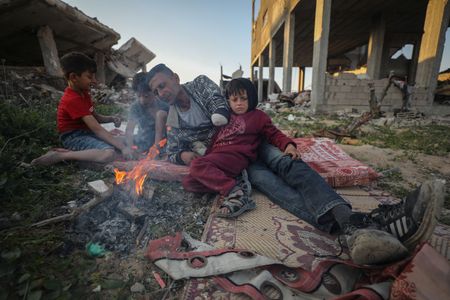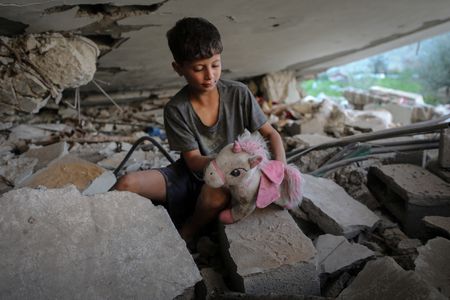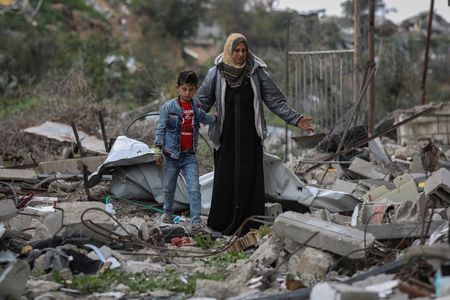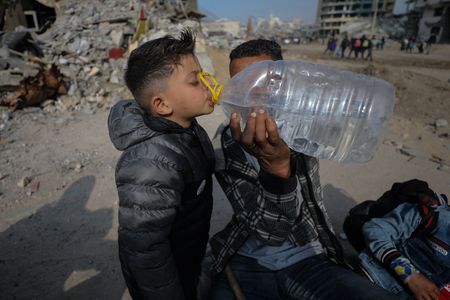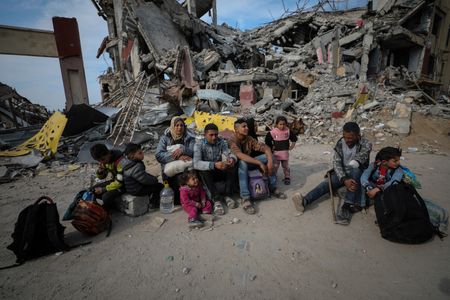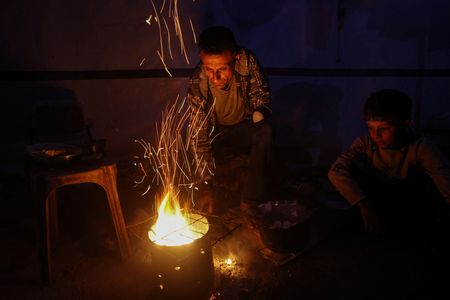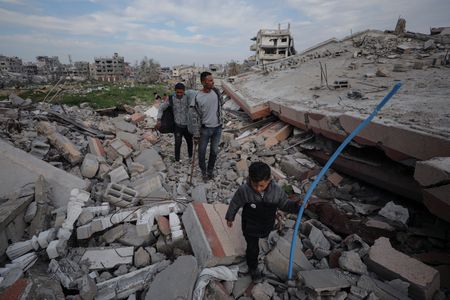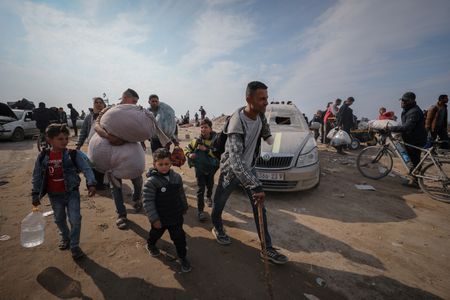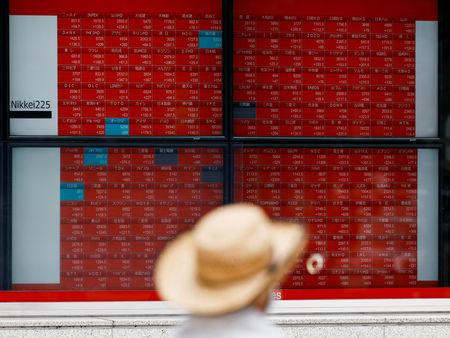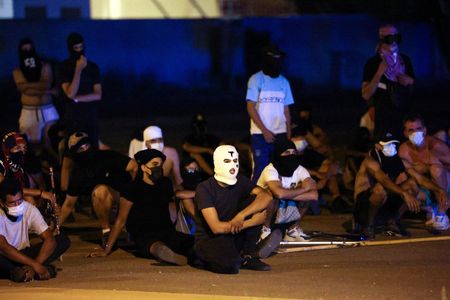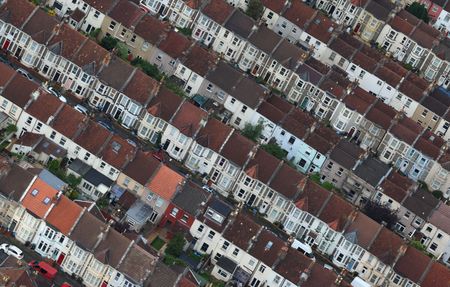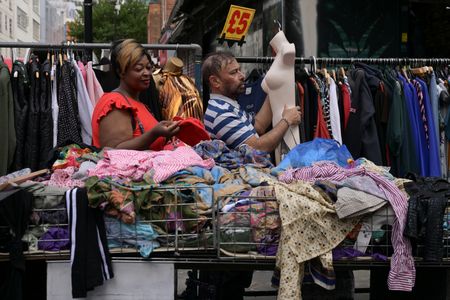By Ramadan Abed and Dawoud Abu Alkas
GAZA (Reuters) – The Mohammed family sat up talking late into the night before their journey north to the ruins of their Gaza home, a trudge across a desolate landscape that hundreds of thousands of Palestinians embarked on last week after a ceasefire.
Crowding around the fire and cooking pot on the sand by their tent in a sprawling camp for displaced people in Deir al-Balah in the southern half of the Gaza Strip, they talked of their excitement at going home, plans for the tough days ahead and the fear and hardship they had lived through over 15 months of war.
“I haven’t slept for the past three nights from joy. I long for my land, my town Jabalia, and the people of the north, to see our kin,” said Ismael Mohammed, 47.
His wife Badreya, 42, their children Waseem, 25, Naseem, 22, Maysoon, 15, Yasser 10, Abdulrahman, 8, and Mohammed, 5, as well as Waseem’s wife and their two toddlers, fled Jabalia early in the war.
Israel began its military campaign in Gaza in response to the Oct. 7, 2023 attack when Hamas gunmen killed around 1,200 people in border communities and seized about 250 hostages, according to Israeli tallies.
Israel’s assault, with the declared goal of destroying Hamas, levelled swathes of the tiny enclave driving nearly all its inhabitants from their homes and killing more than 47,000 Palestinians, according to Palestinian health authorities.
Early in the campaign, Israel ordered civilians to leave the north. Most did so. Those who left were barred from returning until last month’s deal for a ceasefire and hostage release.
After the ceasefire took effect, hundreds of thousands of people left the temporary shelters they had crowded into across the south and trekked back north.
The Mohammed family had learned from relatives that their home had been destroyed in an air strike but they had been ready to return as soon as the ceasefire was agreed.
“Shrapnel passed by the children while they were sleeping here. It went through the cover while I was here in the tent. The children were sick from fear,” said Badreya.
DAUNTING JOURNEY HOME TO THE RUBBLE
Deir al-Balah is only 11 miles (18km) from their Jabalia home. But cars, which must queue for hours at an Israeli checkpoint, are rare and expensive to hire. Like most families, the Mohammeds had to walk.
For Ismael the journey was daunting. He is diabetic and lost an arm to his illness before the war. Last year his leg was injured in an Israeli air strike and he can only hobble, leaning heavily on a rough stick while toting a bag on his back.
Having dismantled their tent, giving it to a neighbour for safe keeping, the family walked for hours, everyone except the youngest children carrying large packs laden with bedding, clothes, kitchen things, food and water.
Through long stretches, the road traversed districts of near total ruin, with mounds of rubble lining each side where buildings had stood. As they went further north, the turquoise Mediterranean Sea on one side contrasted with the dust and debris on the other.
When they reached Gaza City, past the Israeli checkpoint in the north of the enclave, they found a taxi to take them the final stretch, squeezing inside.
In Jabalia they found much of their neighbourhood had been flattened and the roof and upper storey of their home pancaked onto the ground floor.
Palestinians accuse Israel of indiscriminate bombardment. Israel accuses Hamas of hiding among civilian populations and says wherever it could it tried to minimise harm to civilians.
“There is joy, but it is not complete. There is no home, no water, no food. I do not know how I am going to sleep tonight,” said Ismael.
A reunion with a neighbour provided a moment of joy, and the younger family members were soon rooting through the rubble, picking out a stuffed toy unicorn to play with. With mattresses on the ground and a fire started, Ismael lay down.
The family hopes the ceasefire will endure and they can rebuild. Ismael had been in the security forces back when Gaza was controlled by the Palestinian Authority. After Hamas took over Gaza in 2007 he said he was told not to return to work. He now wants a job selling a traditional snack – cooked, salted beans – by the roadside.
(Reporting by Ramadan Abed in Deir al-Balah and Dawoud Abu Alkas in Gaza City; Writing by Angus McDowall; Editing by Janet Lawrence)

